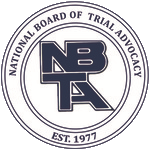
Doctors, surgeons, anesthesiologists, and other medical professionals are supposed to be experts in their particular areas of study. We should feel comfortable when we seek out medical care, confident in the fact that we will be treated and cared for appropriately. This is far too often not the case, though.
The negligent and reckless actions of certain health care providers can lead to so-called “never events.” The occurrence of a never event during the course of your medical treatment is never acceptable and may even warrant pursuing a medical malpractice claim to address the full scope of your damages. At Golden Law Office, we can advise you of your options.
What Is a Never Event?
Kenneth Kizer, MD introduced the term “never event” in 2001. At the time, he used the term to reference especially grievous medical errors that—as the term implies—should never happen. Since then, the definition of the term has been expanded upon to include clearly measurable and identifiable adverse medical events that are serious and often preventable.
There are now 29 defined never events that are grouped into seven different categories.
Surgical or Procedural Events
- Wrong-site surgery, or an operation performed on the wrong body part
- Surgery performed on the incorrect patient
- Wrong surgery performed on a patient
- Objects left behind in a patient after surgery
- Death of a healthy patient (an American Society of Anesthesiologist Class I patient) that occurs during or immediately after surgery
Product or Device Events
- Death or serious injury of a patient from contaminated devices, drugs, or biological material while in a health care setting
- Death or serious injury of a patient after a patient care device did not function as intended
- Death or serious injury of a patient from intravascular air embolism (VAE) in a health care setting
Patient Protection Events
- Discharge of a patient who is unable to make their own decisions
- Death or serious injury of a patient associated with elopement or an unexpected disappearance
- Death of a patient from suicide, or serious injury from attempted suicide or self-harm
Care Management Events
- Medication errors, including incorrect dosages and administering to the wrong patient
- Incorrect or unsafe administration of blood products during a blood transfusion
- Maternal death or serious injury of a patient who is experiencing a low-risk pregnancy during the labor and delivery process
- Death or serious injury of a newborn who is considered low risk during the labor and delivery process
- Incorrectly inseminating a patient with the incorrect donor sperm or egg
- Death or serious injury of a patient after falling while in a health care setting
- Pressure ulcers that are Stage 3, Stage 4, or unstageable while under the care of a health care facility
- Death or serious injury of a patient due to the loss of an irreplaceable biological specimen
- Death or serious injury of a patient due to communication failures or failure to follow up
Environmental Events
- Death or serious injury of a patient due to electric shock in a health care setting
- Incidents in which designated oxygen or other gas lines contain the incorrect gas, no gas, or are contaminated with other substances
- Death or serious injury of a patient from burns suffered in a health care setting
- Death or serious injury of a patient from bedrails or the use of restraints in a health care setting
Radiologic Events
- Death or serious injury of a patient because of the presence of a metal object in an MRI area
Criminal Events
- Care provided by or ordered by any individual who is impersonating a doctor, pharmacist, nurse, or any other type of licensed health care provider
- Abduction of a patient of any age from a health care setting
- Sexual assault or abuse of any patient while in a health care setting
- Death or serious injury of a patient due to physical assault while in a health care setting
Never events are often deadly. Out of all the never events reported to the Joint Commission over a 12-year period, 71% were fatal.
What Causes Never Events?
The vast majority of never events are preventable. Negligent and inattentive behaviors from health care professionals are two of the largest driving factors in the occurrence of never events. In other words, many doctors simply are not paying enough attention.
Take, for example, a wrong-site surgery. Any confusion about whether to operate on a patient’s left or right leg could be easily clarified in a matter of seconds or minutes. It is important to hold a surgeon who failed to verify the correct location of a surgical site accountable for the harm they caused.
Biases among doctors and health care providers are also the source of many serious medical mistakes.
What Is an Always Event?
Some researchers believe it is helpful to also consider the opposite of never events—always events. An always event is a “positive affirming behavior” used to improve patient safety and better overall outcomes. Standardizing always events across health care facilities would promote a positive, long-term culture that prioritizes patient safety. Always events may include:
- Using more than one source of patient identification
- Disclosing potential adverse outcomes with complete transparency
- Implementing strategies for medication error reductions
- Tracking results of lab, pathology, and critical imaging results
- Ensuring that critical information is always available at shift changes or whenever there is a handover of care
The implementation of always events can help hospitals, outpatient facilities, and other health care settings reduce their number of never events while improving overall patient outcomes.
Life After a Never Event
Moving forward after suffering a serious injury in a never event is not easy. While you might count yourself fortunate to have survived, merely surviving should not be the basis by which we judge adequate medical care.
At Golden Law Office, we meet with victims of medical malpractice as they are processing some of the most traumatic events of their lives. Many are struggling under the enormous burden of additional medical bills and lost wages, which can make focusing on recovery difficult. Our medical malpractice lawyers believe that every victim of a never event deserves compensation to support the best possible recovery.
There are many moving parts to a medical malpractice lawsuit, all of which must be balanced with practiced precision. At Golden Law Office, we have the knowledge and experience it takes to secure the best possible outcomes for our clients. Contact us today to schedule your free case evaluation.






